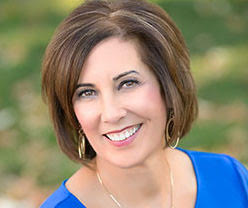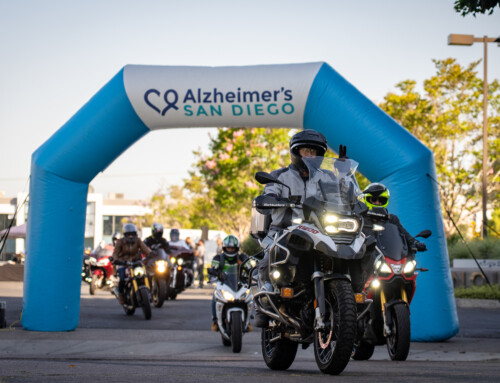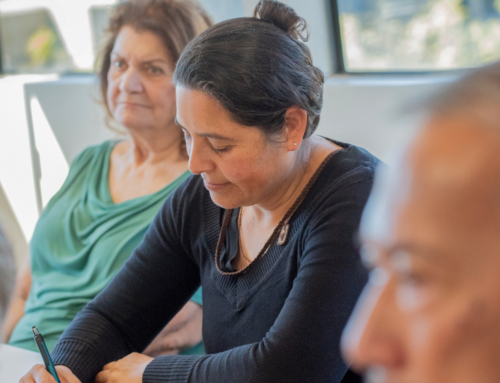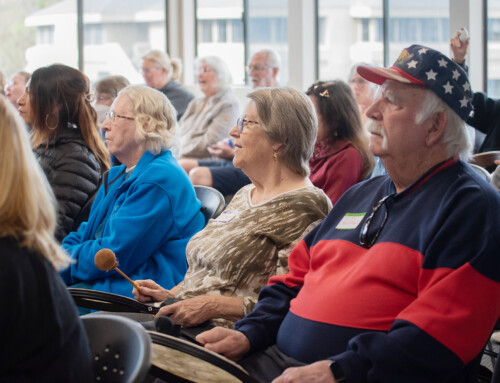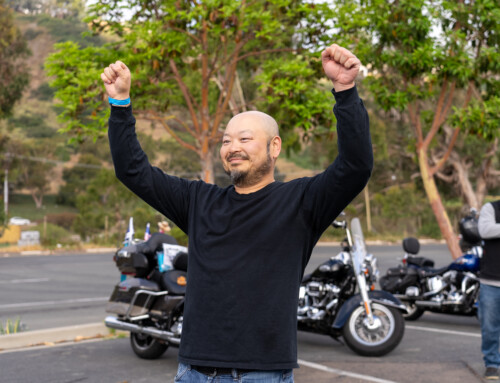This is the final part of this three-part series about what it’s like to participate in a local Alzheimer’s research study. You can read Part 2 here.
My parents’ agonizing journey with Alzheimer’s made me a seeker of information. I needed a better understanding of the disease in learning how to cope with the constant changes in their personalities, as well as the physical changes that come with age.
During my own annual physical exam at Kaiser, I mentioned the history of Alzheimer’s in my family. I asked my doctor if she thought I should have a neurological exam as a baseline for my medical record. She said that would certainly be of value down the road if I exhibit symptoms associated with the disease. I could either do that through my doctor, or I could contact USCD, where it could be done as a component of a longitudinal study. I chose the latter.
RELATED | Local Alzheimer’s studies seeking participants
In the previous blog of this 3-part series, I detailed my experience with the mental testing of that study. There was a physical component as well. This consisted of some general health questions, a blood draw, and blood pressure readings. I was told that an MRI would not be done.
The last element of the exam was a procedure I’d never had before….a lumbar puncture (also known as a spinal tap). I had no fear of this, expecting it to be similar to a pinprick for an immunization. I was in a medical gown, seated on an exam table with my legs extended over the side. The doctor explained that I’d need to bend over, with my head down toward my knees to expose my lower back. The needle would then be inserted into a pocket between two vertebrae, where he would remove a sample of my cerebrospinal fluid.
On the doctor’s first attempt, I did feel a pinprick – but it wasn’t painful. However, the doctor could tell that the insertion hadn’t entered the desired spot. He attempted this again without success. A third and fourth try still did not extract the fluid, and I could feel the needle insertion more intently these subsequent time.
The doctor was concerned that I was feeling extreme pain, but it was more from the position I was in rather than the insertion itself. I commented that the discomfort in my lower back might me from my scoliosis. That was likely the culprit, and the doctor suggested we abandon the test. Since the lumbar puncture is only needed once, rather than annually, I wanted to press on get it done. Eventually, he got it – success at last!
RELATED | Read Karen’s story from the beginning.
Pleased that it was over, I felt that I’d taken a positive step in doing something helpful on the Alzheimer’s front. The whole experience did cause me to take stock of the long-term outlook for my health as well as my husband’s, and how it might affect our grown sons one day down the road. After all, I’d signed a consent form to donate my brain after death. Someone would need to execute that wish.
My husband was covered, having been informed about my initial decision to participate in this study. But, now the practical side of the decision needed attention. We updated our Living Trust and Will. It’s a good idea to check these all-important documents every few years. Sometimes, people decide on their end-of-life wishes without telling anyone – including those responsible for making them happen. My husband and I wanted our sons to hear from us directly about the plan we’d made, and why.
This is never an easy topic for discussion, but two out of our three sons live close by, so we had the chance to talk to them face to face. It was a bit uncomfortable considering the topic, but they did understand our reasons and seemed to handle the news pragmatically. My husband on the other hand, was exceptionally fidgety throughout the discussion….in his words, ‘it really creeps me out.”
For me, it’s given me a sense of accomplishment and peace. If there are advances in the treatment of this disease in the future, maybe others will benefit from what is learned. That could even be me or another family member if we are unfortunate enough to succumb to the disease. At the very least, we will all be more knowledgeable about what to expect and where to find the right resources. At least while we live here, that will be Alzheimer’s San Diego.
Learn more about local Alzheimer’s research by clicking here.
